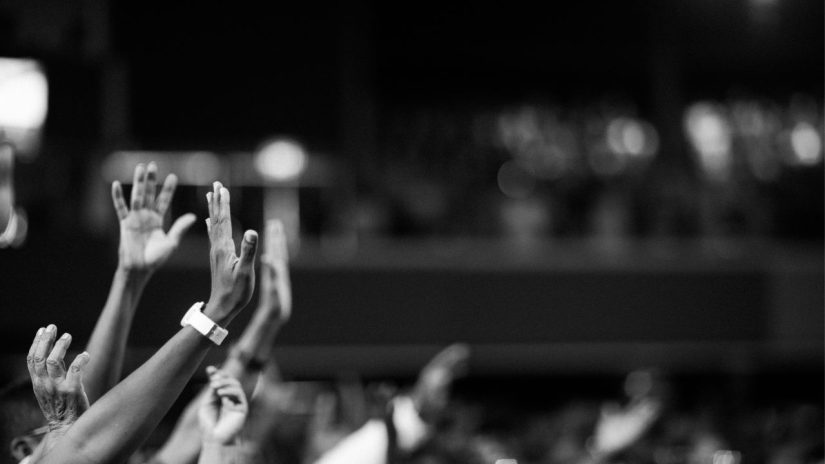
Hendrikus Paulus Kaunang
Indonesia is currently facing a range of challenges that threaten its social and economic stability. Since the end of 2024, numerous events have pushed societal life to one of its lowest points in recent years. From a national leadership crisis, constitutional and legal manipulation, the weakening of the Rupiah, rising unemployment due to mass layoffs, to escalating political and social tensions, all have led the nation down a dark path, filled with uncertainty about a better future. The dream of Indonesia Emas (Golden Indonesia) 2045 seems more like a utopia when viewed against today’s circumstances. The terms Indonesia Gelap (Dark Indonesia) and Indonesia Cemas (Anxious Indonesia) are not mere expressions of pessimism, but rather a stark reflection of the crumbling foundations of national life, brought about by the capability of those in power who, ironically, emerged from a democratic process that is increasingly losing its meaning and integrity.
Amid this era of challenges and uncertainty, 2025 presents Indonesia with a rather unique and rare moment—where major religious celebration from several faith communities are celebrated in close succession: Nyepi (Hindu) on March 29, Eid al-Fitr (Muslim) on March 31 and April 1, and Easter (Christian) on April 20. Religious holidays are much more than just ceremonial events for people who follow their faith and are citizens of the state. These are spiritual moments that revive hope and the desire to create a better future—deeply significant opportunities. Genuine introspection and a reevaluation of one’s prior failings during life’s journey are the seeds of this optimism.
Christians across the country have just commemorated Easter. For me, this moment offers a timely opportunity to strengthen social ties, foster unity across different groups, and revive a sense of solidarity that may have faded due to problems caused by elites who focused more on their own political ambitions. Easter is not merely a religious celebration—it is also a chance to rebuild the bonds of togetherness among the diverse elements of society.
In Christian tradition, Easter symbolizes resurrection, hope, and renewal after suffering. I believe these values are highly relevant to an Indonesia currently grappling with political, economic, and social crises. Easter can serve as a time for communities to reflect, renew their commitment to humanitarian values, and build stronger social solidarity. This aligns with the view that shared norms and values—maintained by all layers of society—are vital in forming stable social cohesion (Durkheim, 1893).
Easter can also be interpreted as a chance to revive social capital, which in recent years has significantly eroded, leading to increased polarization within society. Social capital—which includes mutual trust, cooperation in public programs, and interpersonal connectivity—plays a key role in maintaining social harmony. In times of economic hardship and widespread uncertainty, cultivating critical awareness and engaging in community activities can serve as a first step toward restoring a sense of solidarity. This celebration can also help rebuild trust between groups and promote collective efforts to bring about positive change.
Furthermore, Easter contributes to revitalizing the spirit of togetherness, or Gemeinschaft (Tönnies, 1887), within communities. In a society increasingly divided by political, economic, and cultural differences, Easter presents an opportunity to deepen emotional and personal bonds among individuals. Collective activities that often accompany Easter—such as church services, solidarity actions for vulnerable groups, and other social initiatives—help strengthen social ties based on mutual care and cooperation. This reminds me of Soekarno’s idea in the book Di Bawah Bendera Revolusi (2016), where gotong royong (mutual cooperation) is described as a social foundation that awakens the people’s power. When religious communities and society at large engage in social action during Easter, it becomes a real expression of organic solidarity that can serve as a foundation in the midst of our current multidimensional crisis.
The Easter season is also an occasion for bolstering moral awareness in society. Greater compassion, empathy, and a united effort for positive change can be inspired by the values of sacrifice, justice, and resurrection inherent in the Easter story. Easter’s moral message serves as a reminder to everyone of the significance of maintaining truth and justice in social and political life amid escalating social injustice, corruption, and inequality.
In 2025, amid the many challenges Indonesia faces, the overlapping of significant religious festivities offers a precious chance to bolster unity and social cohesion during this multifaceted crisis. With the spirit of togetherness, social engagement, and the noble values exemplified by Nyepi, Eid al-Fitr, and Easter, society is urged to strengthen inter-group cooperation, defuse potential conflicts, and reinforce the bonds of national integration amid our diversity. Specifically, Easter serves not only as a religious observance but also as a social movement opportunity—an occasion to reaffirm solidarity amid a complex and fragmented reality. In a time of economic downturn, social unrest, and a political atmosphere that frequently diminishes hope, Easter emerges as a symbol of resurrection—a summons to rise and reconstruct a future for Indonesia that is more equitable, dignified, and promising.
Reference:
1. Durkheim, É. (1893). The division of labour in society. Free Press.
2. Tönnies, F. (1887). Community and society (C. P. Loomis, Trans.). H. F. & G. Witherby.
3. Soekarno. (2016). Di Bawah Bendera Revolusi. Yayasan Bung Karno.
